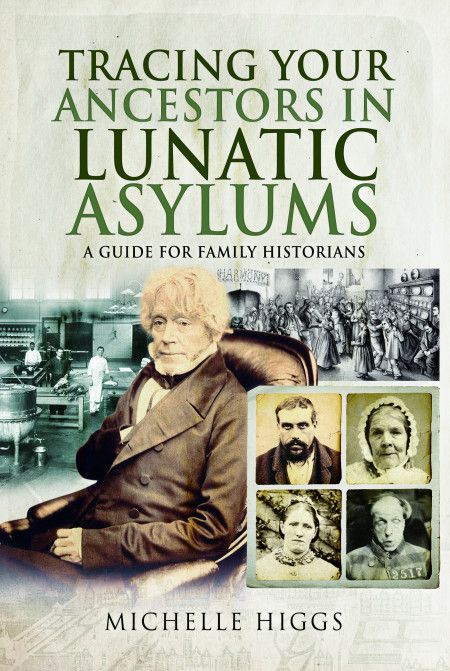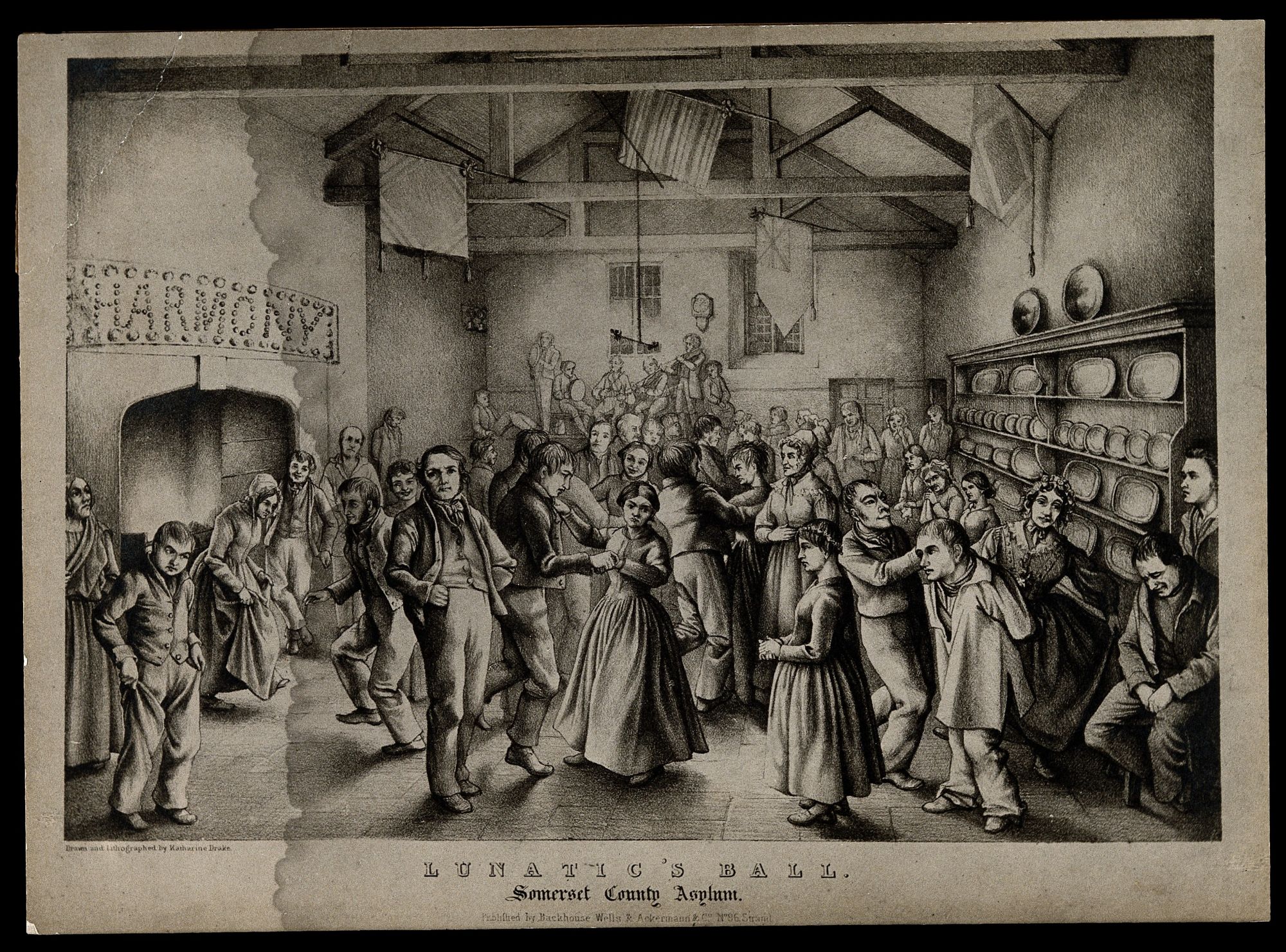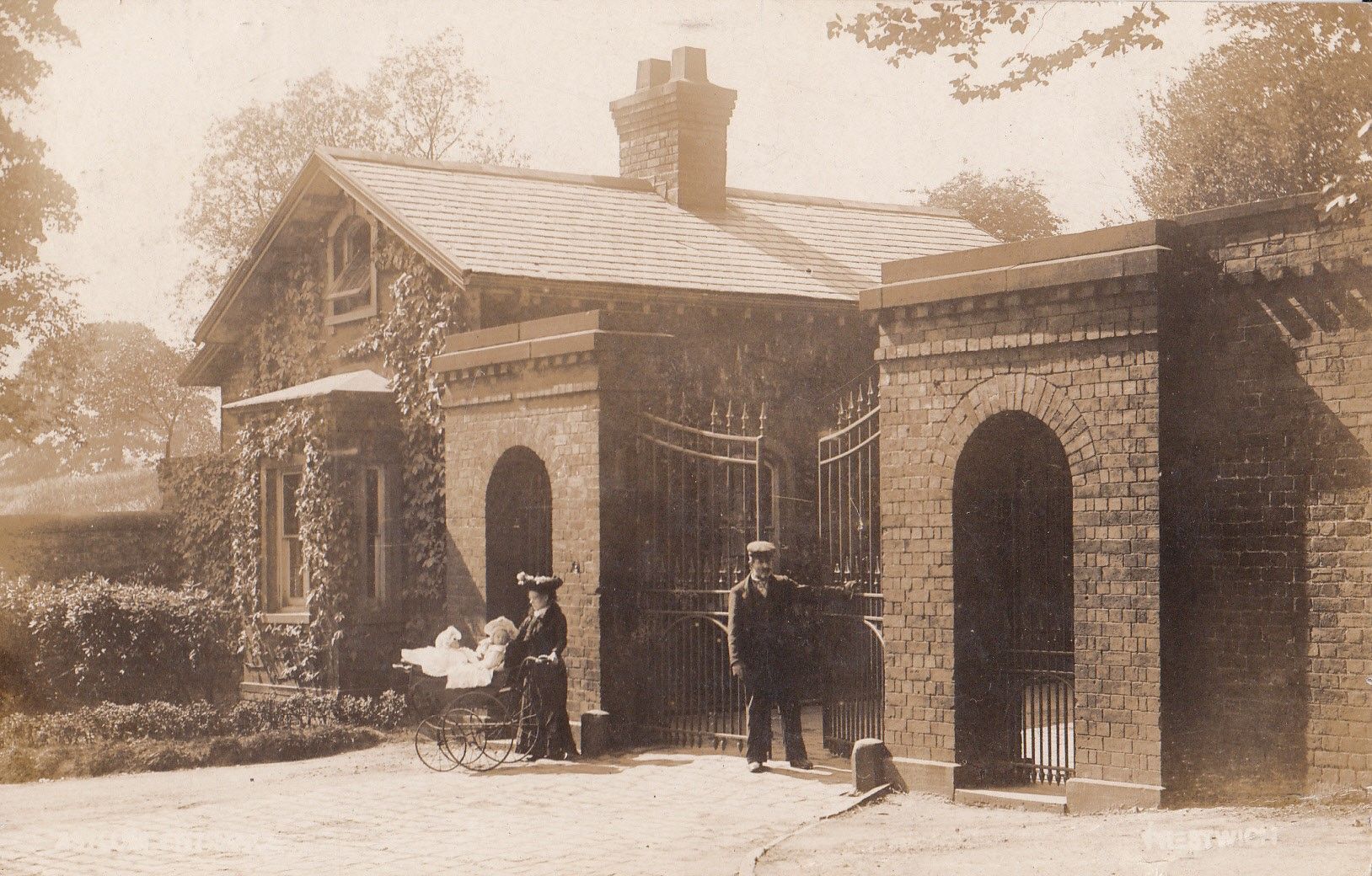TRACING YOUR ANCESTORS IN LUNATIC ASYLUMS
(PEN & SWORD, 2019)
How can you trace forebears who were patients in British lunatic asylums and find out about their lives? What sources can you use to discover their personal history and gain an insight into their experience? This concise, accessible handbook provides the answers to these questions. It offers a fascinating introduction to the subject and gives readers the means to explore the records for themselves.
Covering the period from the eighteenth century through to 1948 when the NHS was founded, the book looks particularly at the Victorian era which is the most popular period for research. Using original records, contemporary accounts, photographs and illustrations, the story of the asylums and their patients is brought to life; there are also eighteen vivid case studies of real people who were treated in asylums.
Types of mental illness and asylums are described, as are the admission procedures and daily routine of the patients. Chapters look at the different kinds of mental illness treated, for instance, patients with melancholia, criminal lunatics, mothers with puerperal mania, epileptics, and soldiers suffering from shell-shock. There are sections on the systems in Scotland and Ireland, as well as England and Wales. Information is provided on all the relevant sources, from wills and the census to admission and discharge registers.
'More than a guide to the records, this is also a moving exploration of the lives led by ancestors who suffered mental illness and were incarcerated in lunatic asylums, hidden from sight and often forgotten by the next generation. This is a chance to learn more about these lost souls and restore them to your family tree.'
Family Tree, December 2019
'Records of mental illness can be among the most poignant, visceral and startling evidence available to family history researchers...In this book, regular WDYTYA? contributor Michelle Higgs deals expertly with the complex ways in which the treatment of the most vulnerable was influenced not only by the era, but also by factors such as geography, age, class, gender and the severity of their illness.'
Who Do You Think You Are?, December 2019


